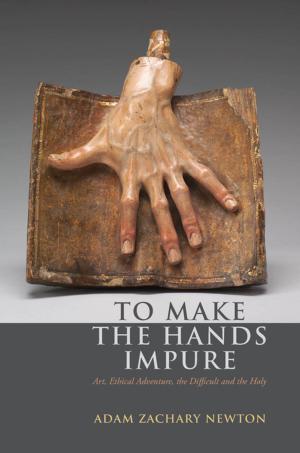Saintly Influence
Edith Wyschogrod and the Possibilities of Philosophy of Religion
Nonfiction, Religion & Spirituality, Philosophy| Author: | ISBN: | 9780823230891 | |
| Publisher: | Fordham University Press | Publication: | August 25, 2009 |
| Imprint: | Fordham University Press | Language: | English |
| Author: | |
| ISBN: | 9780823230891 |
| Publisher: | Fordham University Press |
| Publication: | August 25, 2009 |
| Imprint: | Fordham University Press |
| Language: | English |
Since the publication of her first book, Emmanuel Levinas: The Problem of Ethical Metaphysics, in 1974-the first book about Levinas published in English-Edith Wyschogrod has been at the forefront of the fields of Continental philosophy and philosophy of religion. Her work has crossed many disciplinary boundaries, making peregrinations from phenomenology and moral philosophy to historiography, the history of religions (both Western and non-Western), aesthetics, and the philosophy of biology. In all of these discourses, she has sought to cultivate an awareness of how the self is situated and influenced, as well as the ways in which a self can influence others.
In this volume, twelve scholars examine and display the influence of Wyschogrod's work in essays that take up the thematics of influence in a variety of contexts: Christian theology, the saintly behavior of the villagers of Le Chambon sur Lignon, the texts of the medieval Jewish mystic Abraham Abulafia, the philosophies of Levinas, Derrida, and Benjamin, the practice of intellectual history, the cultural memory of the New Testament, and pedagogy.
In response, Wyschogrod shows how her interlocutors have brought to light her multiple authorial personae and have thus marked the ambiguity of selfhood, its position at the nexus of being influenced by and influencing others.
Since the publication of her first book, Emmanuel Levinas: The Problem of Ethical Metaphysics, in 1974-the first book about Levinas published in English-Edith Wyschogrod has been at the forefront of the fields of Continental philosophy and philosophy of religion. Her work has crossed many disciplinary boundaries, making peregrinations from phenomenology and moral philosophy to historiography, the history of religions (both Western and non-Western), aesthetics, and the philosophy of biology. In all of these discourses, she has sought to cultivate an awareness of how the self is situated and influenced, as well as the ways in which a self can influence others.
In this volume, twelve scholars examine and display the influence of Wyschogrod's work in essays that take up the thematics of influence in a variety of contexts: Christian theology, the saintly behavior of the villagers of Le Chambon sur Lignon, the texts of the medieval Jewish mystic Abraham Abulafia, the philosophies of Levinas, Derrida, and Benjamin, the practice of intellectual history, the cultural memory of the New Testament, and pedagogy.
In response, Wyschogrod shows how her interlocutors have brought to light her multiple authorial personae and have thus marked the ambiguity of selfhood, its position at the nexus of being influenced by and influencing others.















